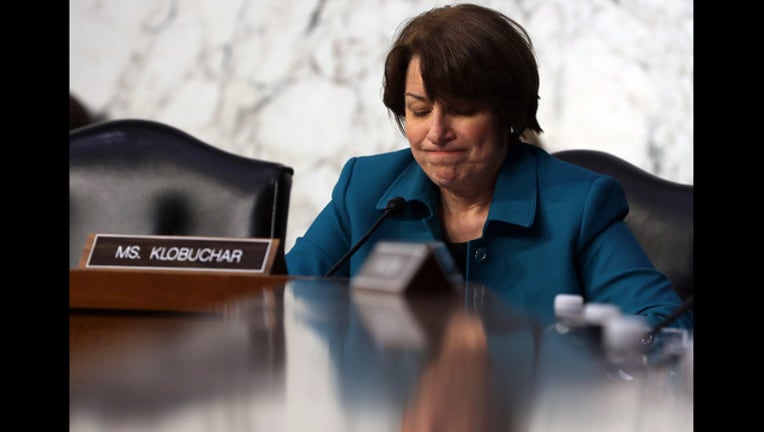U.S. rollback of senior home regulation worries state officials

WASHINGTON: U.S. Sen. Amy Klobuchar (D-MN) questions Judge Neil Gorsuch during the third day of his Supreme Court confirmation hearing before the Senate Judiciary Committee. (Photo by Justin Sullivan/Getty Images)
MINNEAPOLIS (KMSP) - Minnesota officials are speaking out against measures by the Trump administration to roll back federal oversight of nursing homes and assisted care facilities, an effort advocates worry will undermine recent efforts to curtail senior abuse in the state.
Despite a backlog of complaints both in Minnesota and nationwide, the Centers for Medicare and Medicaid Services and the Department of Health and Human Services have in recent months begun to cut back enforcement mechanisms and penalties meant to protect individuals living in senior homes. The measures will likely reduce, and in some cases eliminate, fines and other disciplinary actions after incidents that can cause injuries and even death.
In doing so, the Trump administration is rolling back regulations the nursing home industry has long decried as onerous, with fines ramping up in the final few years of the Obama administration as more resources were dedicated to pursuing action against companies found to be in violation of federal law. Advocates, however, say this effectively dismantles an oversight system that was already poor to begin with.
"There's many great, loving people who work at nursing homes, but there's clearly some bad eggs that get jobs sometimes and do some crimes," Sen. Amy Klobuchar, DFL-Minnesota, said. "As we see more seniors going into nursing homes and assisted living facilities, we should be seeing better enforcement and more resources, not less."
The rollback accompanies a recent Star Tribune investigation that found 97 percent of the more than 25,000 allegations of neglect or abuse in Minnesota senior living facilities were never investigated. Gov. Mark Dayton announced last November he was creating a task force to deal with the issue, with the state Health Department commissioner stepping down soon after.
"The only way to get a change when something happens is to have an investigation and a penalty," Klobuchar said. "The federal government has two roles here--to get the facts out ... and to make sure the laws are enforced. Their job is to make it easier for the states, not harder."

